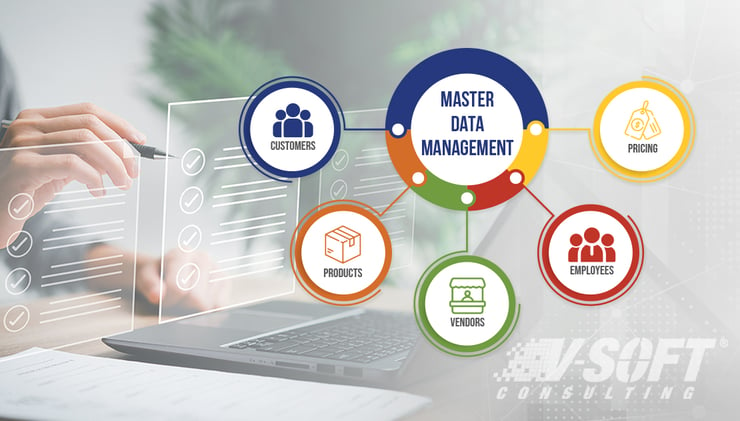In the digital age, data has become one of the most valuable assets for businesses across all industries. As companies collect and store vast amounts of data, ensuring its proper management and security has become paramount. This is where enterprise data governance comes into play. Data governance refers to the overall management of data within an organization, encompassing policies, processes, and controls. This ensures quality, availability, integrity, as well as the security of data. It provides a framework for organizations to ensure quality data assets while adhering to compliance regulations and industry standards.
However, Enterprise data governance goes beyond simply managing data. It also focuses on aligning data management practices with a business’s objectives. By implementing robust data governance strategies, organizations can gain a competitive edge by leveraging their data assets for informed decision-making to improve their operational efficiency. Data governance provides organizations the following benefits:
Enhancing Data Quality
Improving data quality not only enhances decision-making, but also boosts operational efficiency. When organizations have access to reliable and consistent data, they can streamline processes, identify inefficiencies, and optimize operations. This leads to cost savings, improved productivity, and better resource allocation.
Ensuring Data Security
Data security is a critical aspect of enterprise data governance. With cyber threats becoming increasingly sophisticated, organizations must implement stringent measures to protect sensitive information from unauthorized access or breaches. Data governance helps establish protocols and controls to safeguard valuable corporate information from potential risks.
Meeting Industry Standards and Legal Requirements
Compliance regulations have become more stringent in recent years. Organizations must adhere to various regulatory requirements such as GDPR (General Data Protection Regulation) or HIPAA (Health Insurance Portability and Accountability Act), depending on their industry. Enterprise data governance ensures that companies meet these compliance obligations by establishing policies and procedures that govern how personal or sensitive information is collected, stored, processed, and shared.
The Key Components of Effective Enterprise Data Governance Strategy
Implementing an effective enterprise data governance strategy is crucial for organizations to manage their data assets efficiently and ensure compliance with regulations. To achieve this, several key components need to be considered.
- First, a well-defined data governance framework implementation plan is essential. This plan outlines the steps and processes required to establish and maintain an effective data governance program within the organization. It includes defining goals, identifying stakeholders, establishing roles and responsibilities, along with creating a roadmap for implementation.
- Roles and responsibilities play a vital role in data governance. Assigning specific individuals or teams as data stewards ensures accountability for managing the quality, integrity, and security of data. These stewards are responsible for enforcing policies and procedures related to data governance across the organization.
- Data governance policies and procedures provide guidelines on how data should be collected, stored, accessed, shared, and protected within the organization. These policies outline best practices for ensuring data quality, consistency, privacy, security, and compliance with relevant regulations.
- Data stewardship is another critical component of effective enterprise data governance. It involves assigning ownership of specific datasets to designated individuals responsible for maintaining their accuracy, completeness, and availability throughout their lifecycle.
- Data lifecycle management encompasses all stages of a dataset's existence - from creation or acquisition to archival or deletion. It includes processes such as data retention policies, archiving strategies, backup plans, disaster recovery procedures, and secure disposal methods.
- Lastly but importantly is the aspect of data classification and tagging. By classifying different types of data based on sensitivity levels or regulatory requirements (e.g., personally identifiable information), organizations can apply appropriate security controls and access restrictions. Tagging enables efficient searchability and retrieval of specific datasets based on predefined metadata attributes.
Conclusion
Understanding the significance of enterprise data governance is crucial in today's business landscape. It not only ensures effective management of valuable corporate assets but also protects against potential risks associated with improper handling of sensitive information. By implementing robust data governance practices, organizations can enhance their decision-making capabilities while maintaining compliance with regulatory standards in an increasingly digital world.
To learn how V-Soft Consulting can help you implement a robust data governance strategy get in touch with our experts.















